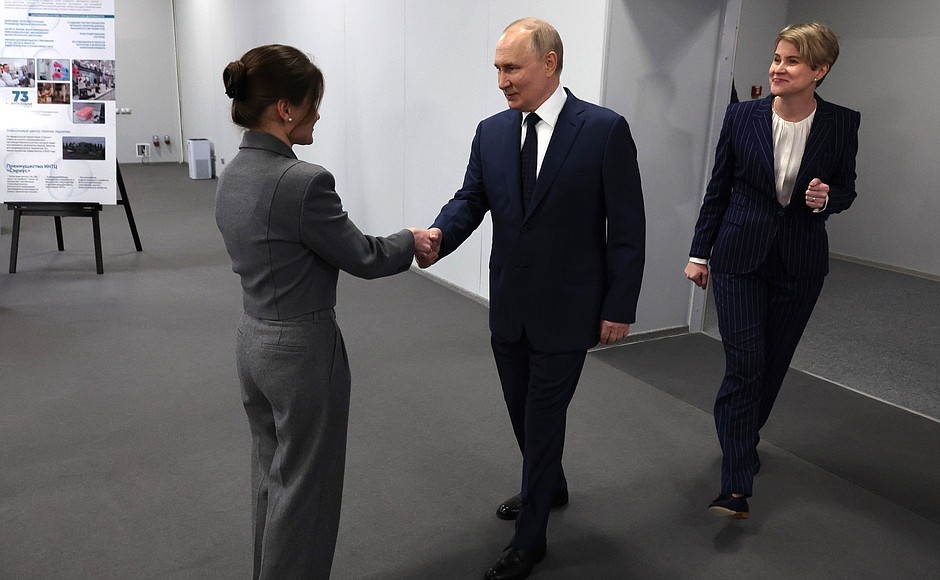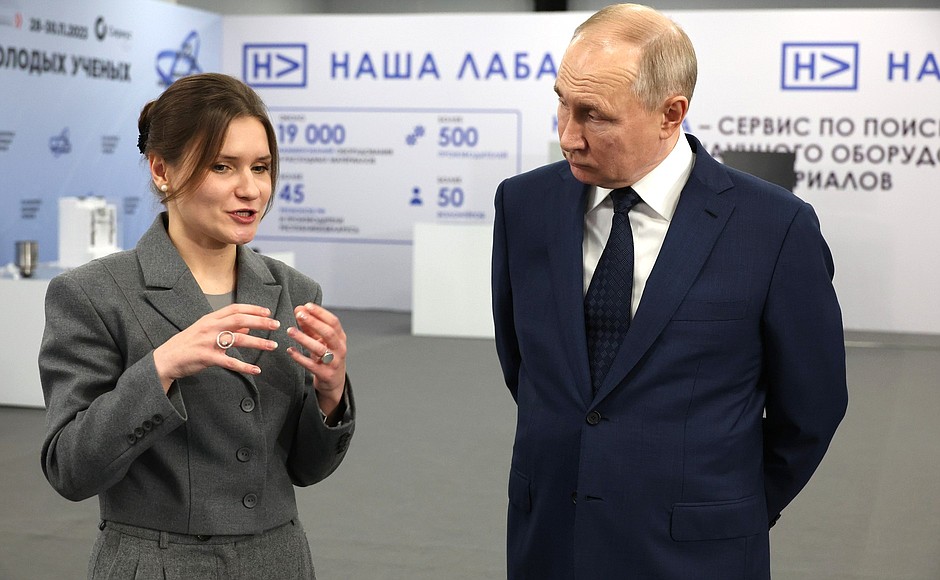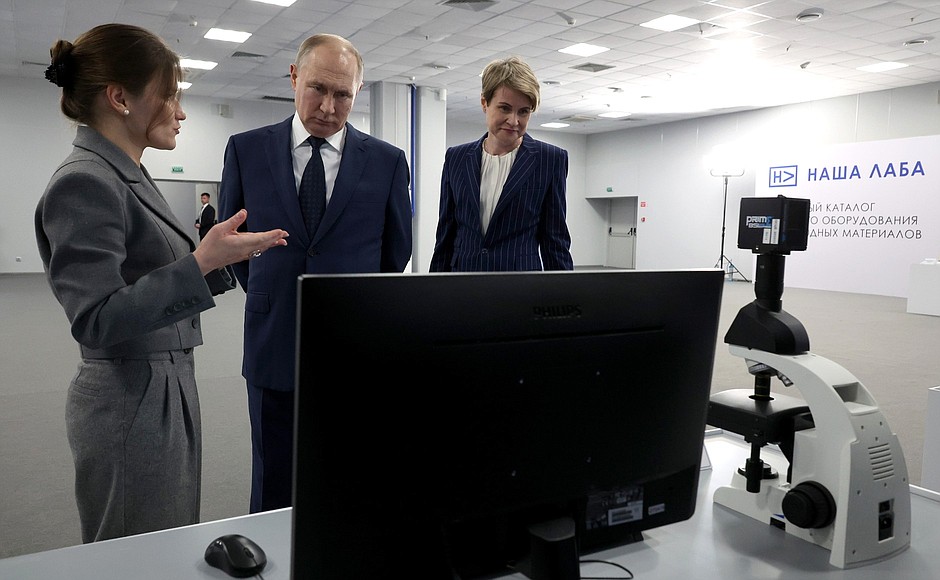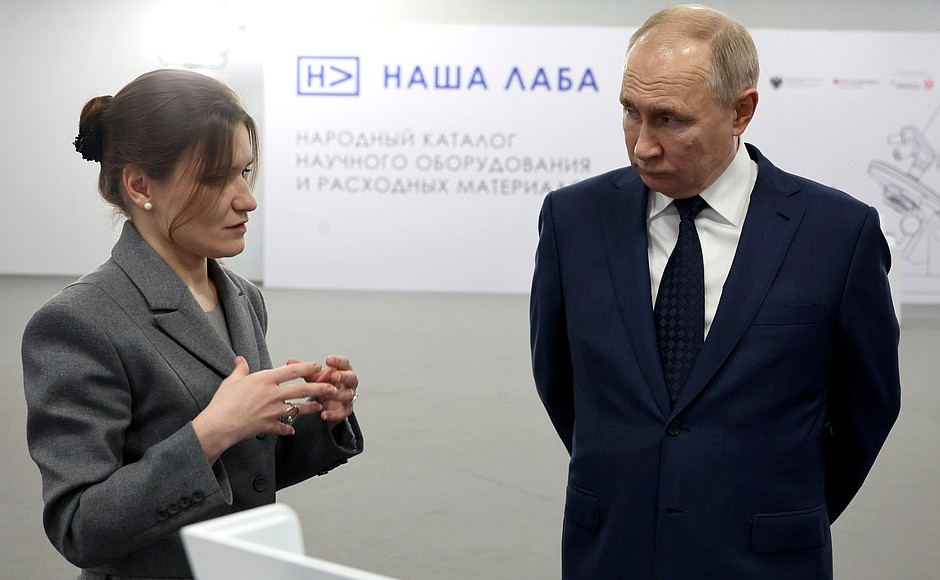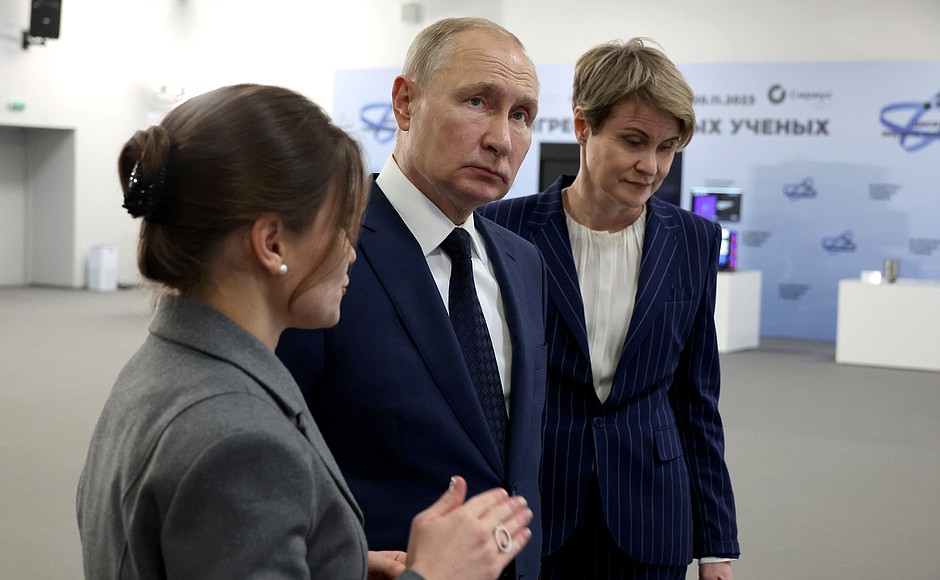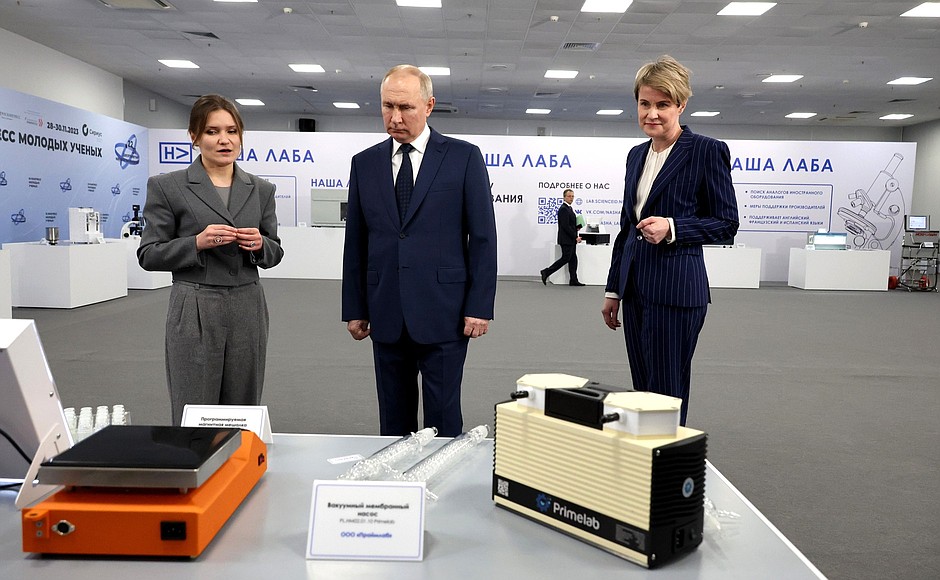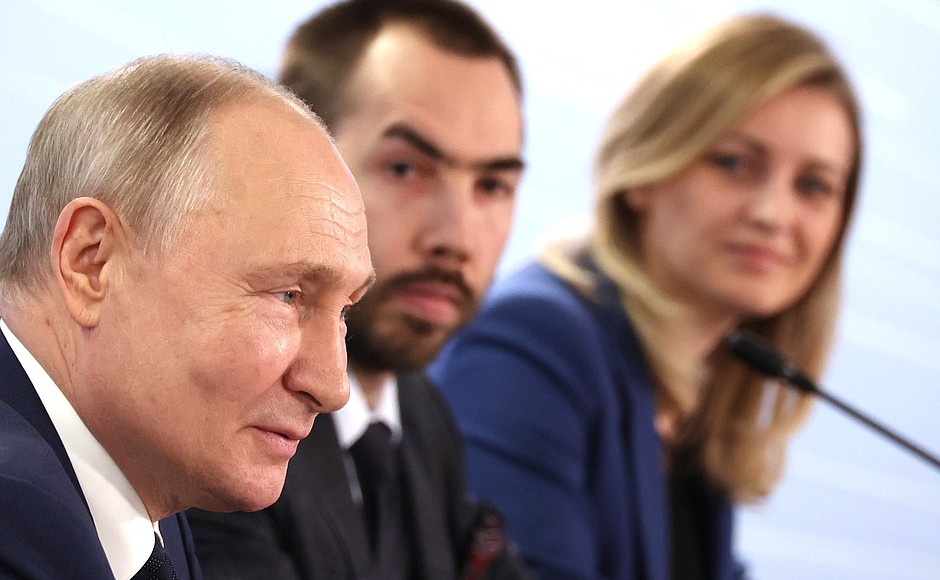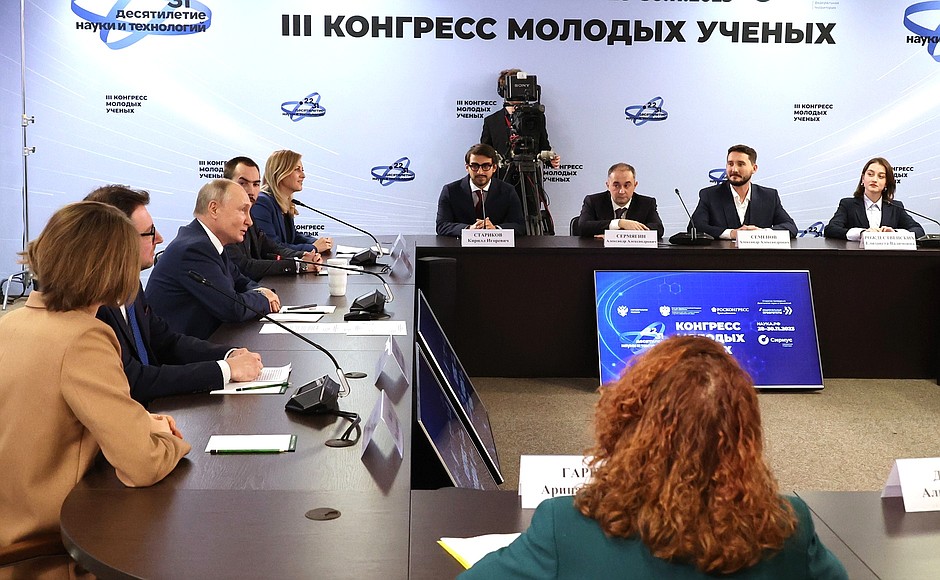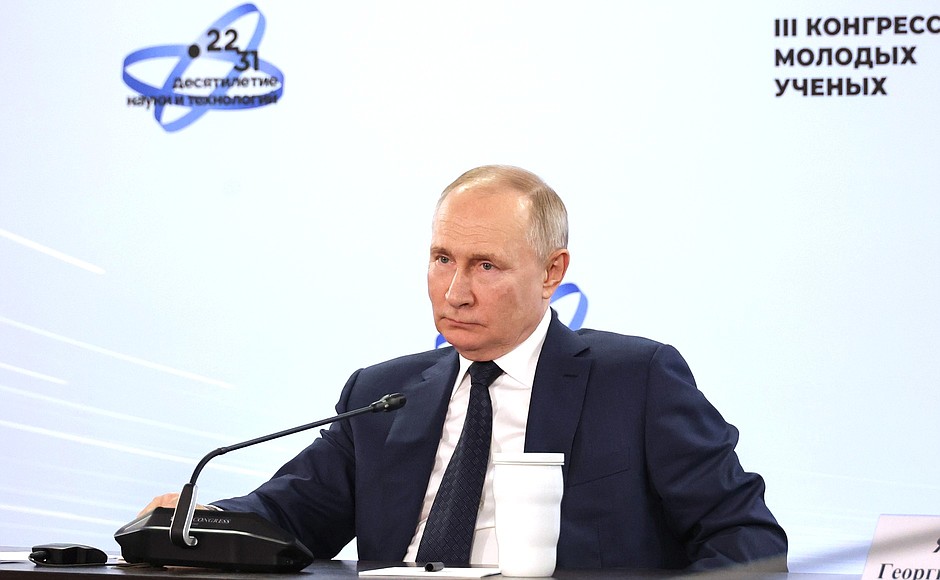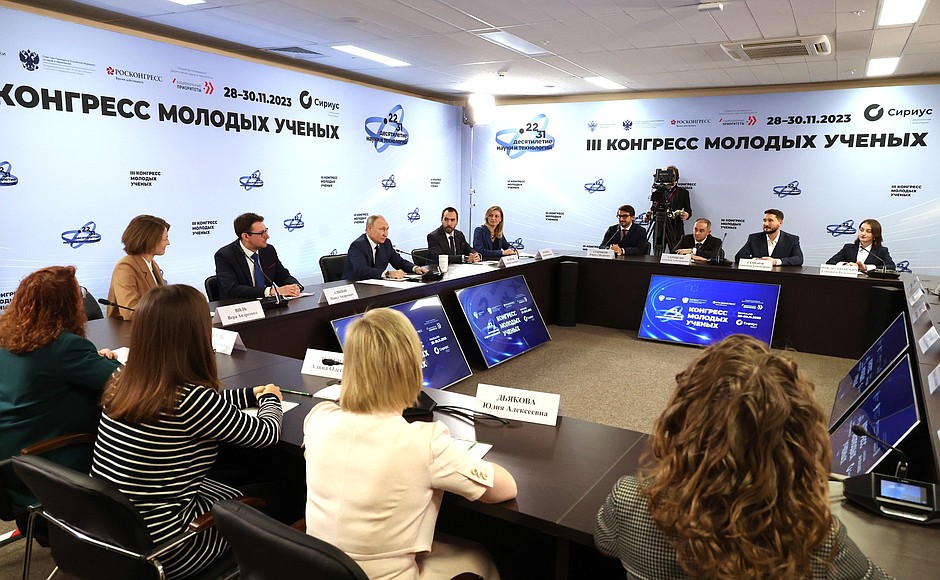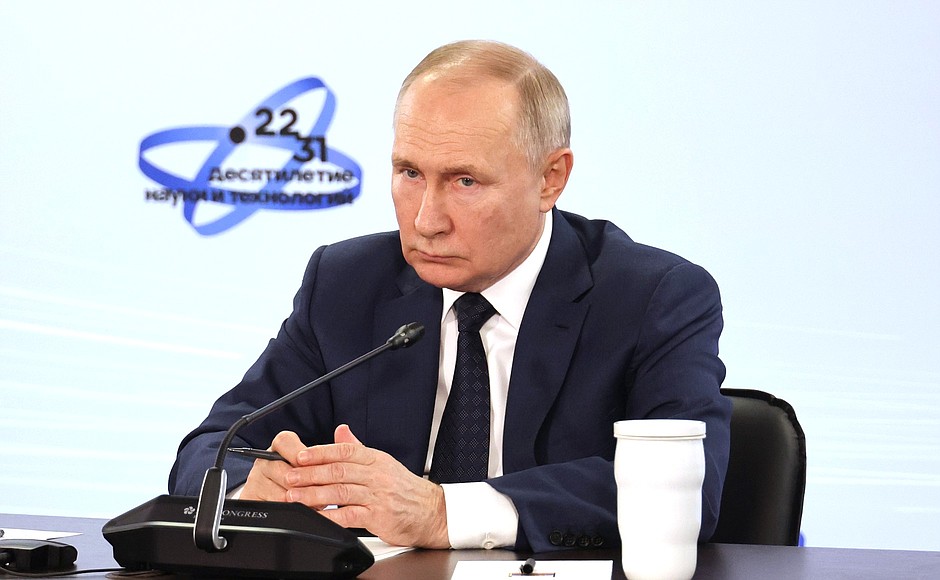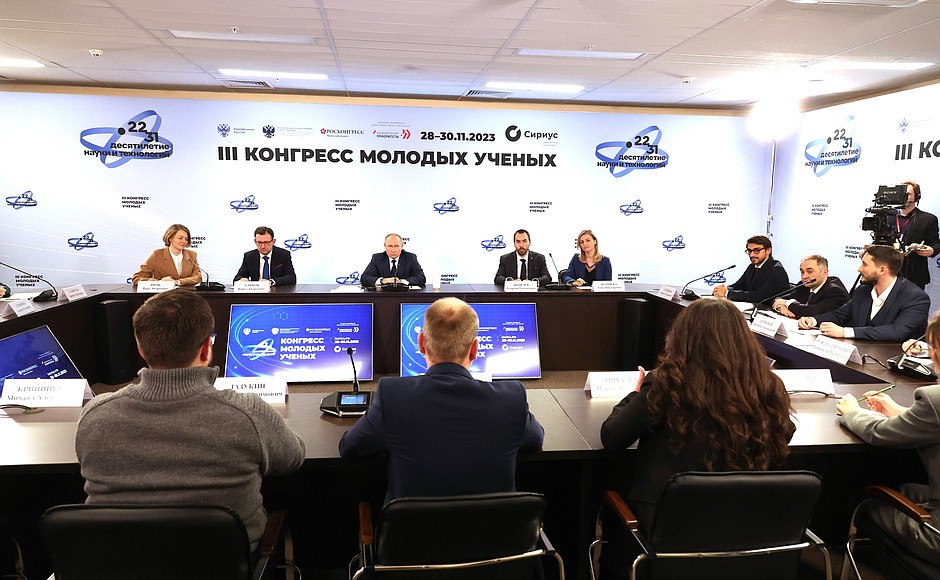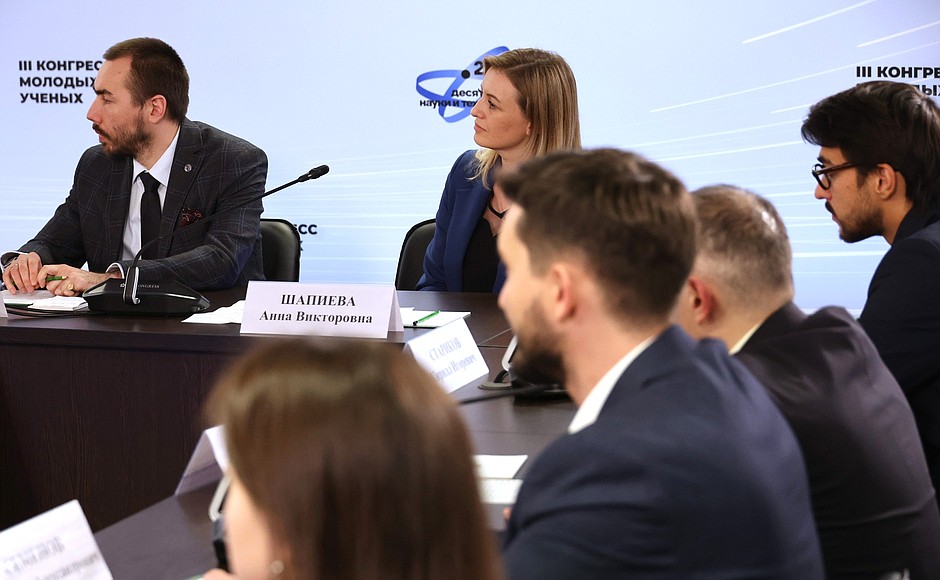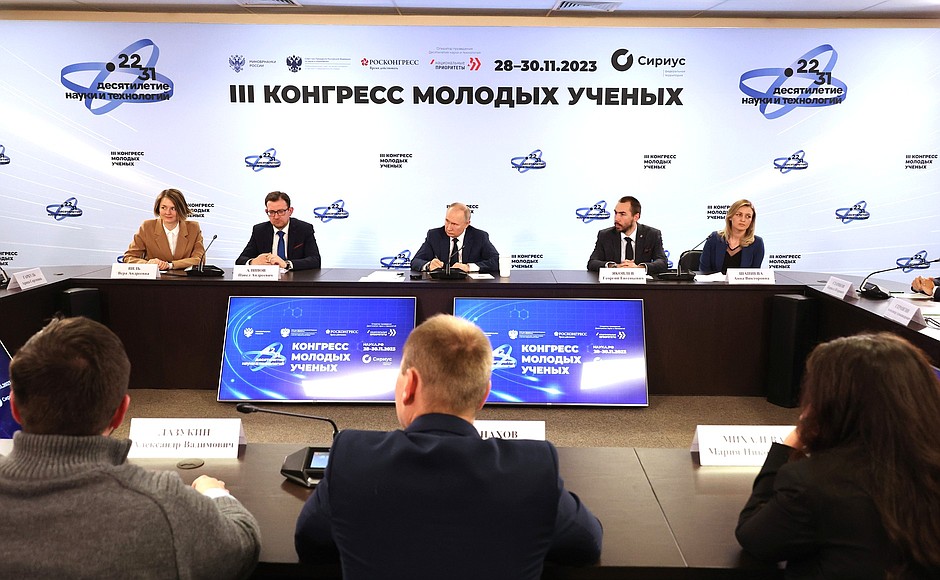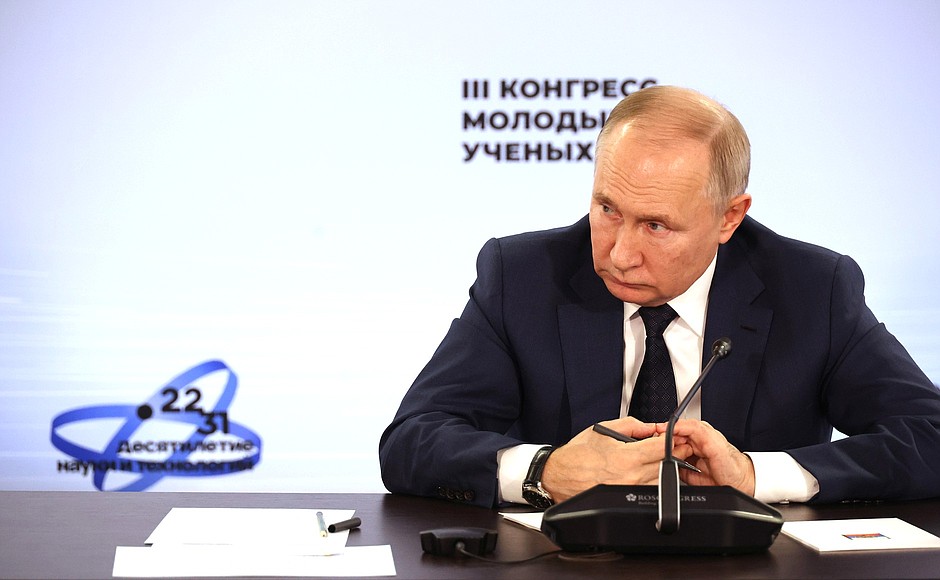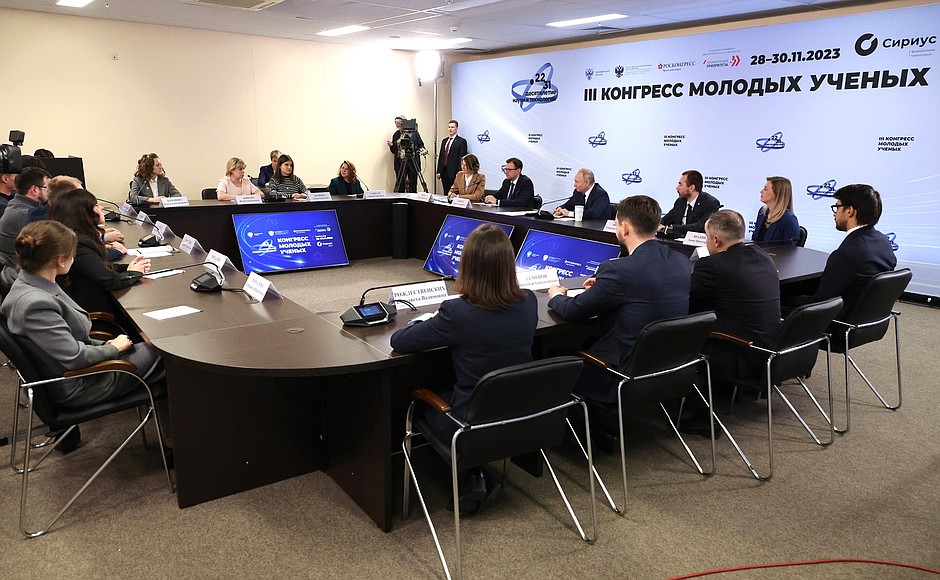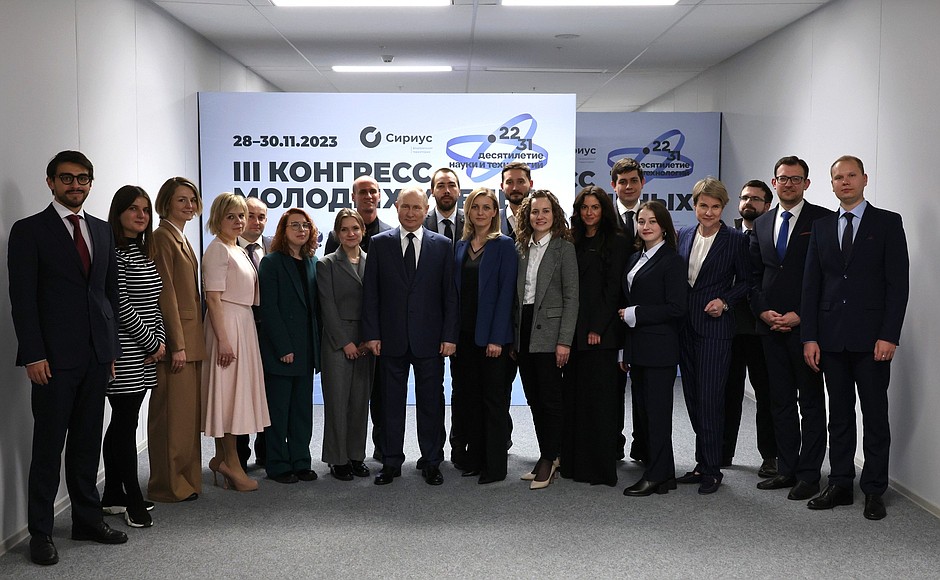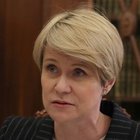Before the meeting, the President inspected items from the Nasha Laba project with the head of the Talent and Success Educational Foundation, Yelena Shmelyova. The exhibition, held as part of the Congress of Young Scientists, showed about 110 units of research equipment from 17 leading Russian and Belarusian companies.
Nasha Laba is a continuously updated, publicly accessible database of research equipment, consumables and reagents produced in Russia and Belarus. The online catalogue includes about 19,000 items from over 500 companies. The project is designed to help scientists and engineers find the necessary equipment and to support producers in promoting their products in both the domestic and foreign markets.
* * *
President of Russia Vladimir Putin: I am very happy to see you! Good afternoon.
My colleague Yelizaveta Mochalova has already started telling you how the Nasha Laba programme is organised. I am very pleased that our agreements at such sessions produce projects that are fully realised. How many? 19,000 items already, right? This is very important because our so-called partners – well, that's what we used to call them – thought they had us hooked on their technology, that we would never get beyond this dependency.
But the efforts of people like you and your colleagues have proven that it is possible – and not just possible but it is happening fairly rapidly.
Yelizaveta gave us a few examples of this work, and also said the operative phrase. Consciously, or not, she nailed it when she said that before our researchers used to buy instrumentation abroad, but now they have to. This is important, because our manufacturers now have a market for these instruments. If there is a market, there is an economic incentive to make them. Back when everything could be bought abroad, the domestic market did not exist.
There is a thing that is very simple, even primitive, but very important and effective – competition. Products available on the domestic market must compete. I understand there may be some distinctive goods that are produced in small batches, but still, when we talk about mass production, there must be competition to ensure quality. That is my first point.
Second, I would like to take this opportunity to say thank you to your mentors, your research advisers, and your professors for what is happening – lots of good things are happening – because a significant amount of your successes can be attributed to their efforts. Our teachers, including mine, once enabled us to take our first steps in our respective fields. That is my second point.
Next, your colleagues, whom I met with last year, brought up the issue of raising stipends for graduate students. We are doing that. The stipend will now amount to 75,000 rubles. Perhaps, this is not a lot, but one can live on it. It never hurts to have a cushion. It is important when there are no other sources of income, and when a person needs to focus on the cause to which they have dedicated themselves, I understand. In that case, though, some payments will be revoked, like a measly 4,500 rubles or something. I hope no one will pay attention to that.
This is what I wanted to say at the beginning. To stop this monologue and make our meeting more meaningful, I would be pleased to hear what you have to say about your achievements. If you share issues that you may have, I will try to remember them as well. I asked Mr Fursenko to help me, so if I forget something, he, as a renowned expert administrator, will write things down. We will try to do our best to resolve the issues that you may have.
Please, let us start. Who will begin?
To be continued.
